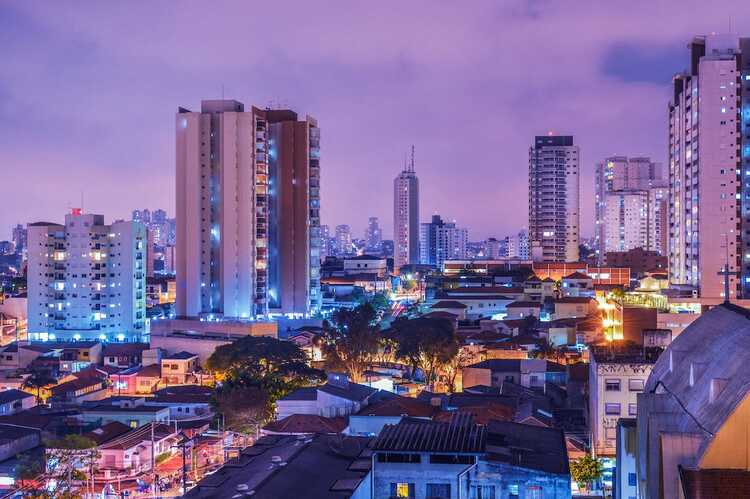Casa do Albergado de Manaus, also known as the Manaus Rehabilitation Center, is a vital institution in the city of Manaus, Brazil. This facility serves as a rehabilitation center for individuals who have gone through the criminal justice system, offering them an opportunity to reintegrate into society successfully. In this article, we will explore the purpose, services, and impact of Casa do Albergado de Manaus, shedding light on its significant role in promoting rehabilitation and social reintegration.
Table of Contents
1. The Importance of Rehabilitation Centers
Rehabilitation centers play a crucial role in society by providing individuals with the opportunity to reform, reintegrate, and rebuild their lives after being involved in the criminal justice system. These centers offer a structured environment that focuses on rehabilitation, addressing not only the legal aspects but also the psychological, educational, and vocational needs of the individuals involved.
2. The Founding of Casa do Albergado de Manaus
Casa do Albergado de Manaus was established in [year], with the vision of creating a safe and supportive space for individuals transitioning back into society. Recognizing the importance of rehabilitation, the government and various community organizations came together to initiate this project, driven by the belief that every individual deserves a second chance.
3. Facilities and Resources
Casa do Albergado de Manaus boasts state-of-the-art facilities designed to provide a comfortable and secure environment for its residents. The center includes residential quarters, classrooms, vocational training workshops, recreational areas, and administrative offices. The architecture and layout are carefully planned to foster a sense of community and promote personal growth.
4. Programs and Services Offered
Casa do Albergado de Manaus offers a comprehensive range of programs and services tailored to the unique needs of each individual. These include:
4.1 Education and Skill Development
Education is a fundamental pillar of rehabilitation at Casa do Albergado de Manaus. The center provides educational programs that cover basic literacy skills, high school equivalency, vocational training, and life skills development. By acquiring new knowledge and skills, individuals enhance their chances of securing employment and building a stable future.
4.2 Mental Health Support
Recognizing the importance of mental well-being in the rehabilitation process, Casa do Albergado de Manaus offers professional counseling and therapy services. Trained psychologists and counselors work closely with residents, addressing their emotional and psychological needs, and helping them develop healthy coping mechanisms to overcome challenges.
4.3 Medical Care and Substance Abuse Treatment
Casa do Albergado de Manaus places great emphasis on healthcare and substance abuse treatment. Medical professionals are available on-site to provide regular check-ups, address medical concerns, and develop personalized treatment plans for individuals struggling with substance abuse issues. This integrated approach ensures comprehensive care for all residents.
4.4 Community Integration and Support
Successful rehabilitation involves reintegrating individuals back into society. Casa do Albergado de Manaus collaborates with local businesses and organizations to create employment opportunities and support networks for its residents. Through community engagement initiatives, the center encourages acceptance and provides a strong support system for individuals transitioning out of the rehabilitation program.
5. Success Stories: Transforming Lives
Casa do Albergado de Manaus has witnessed numerous success stories, where individuals have overcome their past and made significant strides toward a better future. These stories stand as testaments to the effectiveness of the rehabilitation programs offered at the center. Through dedication, perseverance, and the support received, individuals have rebuilt their lives, restored relationships, and become productive members of society once again.
6. Challenges and Future Directions
While Casa do Albergado de Manaus has achieved remarkable success, it faces certain challenges. Limited funding, overcrowding, and societal stigma are persistent obstacles that need to be addressed. To overcome these challenges, the center aims to foster stronger partnerships with government agencies, private organizations, and the community at large. With increased support and resources, Casa do Albergado de Manaus can expand its services, reach more individuals in need, and create an even greater impact on society.
Conclusion
Casa do Albergado de Manaus plays a crucial role in rehabilitating individuals who have been involved in the criminal justice system. By offering a comprehensive range of programs and services, the center provides individuals with the necessary tools and support to reintegrate into society successfully. With a focus on education, mental health support, medical care, and community integration, Casa do Albergado de Manaus empowers individuals to transform their lives and build a brighter future.
FAQs
- Can anyone access Casa do Albergado de Manaus?
- No, Casa do Albergado de Manaus is specifically for individuals who have gone through the criminal justice system and are seeking rehabilitation.
- How long does the rehabilitation program at Casa do Albergado de Manaus last?
- The duration of the program varies depending on the individual’s progress and specific needs. It can range from several months to a few years.
- What types of vocational training are available at Casa do Albergado de Manaus?
- Casa do Albergado de Manaus offers a diverse range of vocational training programs, including carpentry, cooking, computer skills, and more.
- Does Casa do Albergado de Manaus provide support after individuals complete the program?
- Yes, Casa do Albergado de Manaus offers post-rehabilitation support, including job placement assistance and ongoing counseling services.
- How can I support Casa do Albergado de Manaus?
- You can support Casa do Albergado de Manaus by volunteering your time, making a donation, or advocating for greater awareness and resources for rehabilitation centers.

